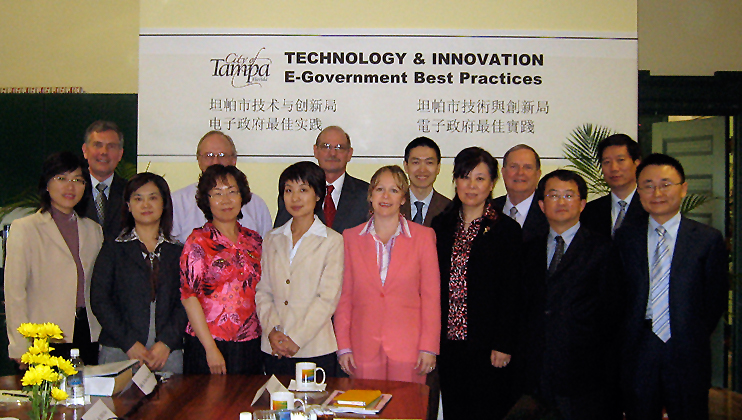Despite differences in political traditions and practices, municipal government officials in the United States, mainland China, and Taiwan share interests in delivering services to citizens, promoting economic development, and managing government resources. Many have taken advantage of the Internet’s capacity for fast, inexpensive communication and introduced innovative municipal websites. These e-government initiatives, in turn, have dramatically changed the way local governments interact with residents and opened new channels for promoting civic engagement, transparency, and government accountability.
With funding from the U.S. State Department, the National Committee implemented an exchange project that provided a forum for representatives of municipal governments to share experience in using e-government to communicate with citizens and coordinate delivery of services.
The project took place in three stages: In the first stage, completed in July 2007, a delegation of four American specialists participated in workshops in Beijing, Hangzhou, and Taichung with their professional counterparts. The second stage, completed in March 2008, brought four mainland Chinese and four Taiwan information officers and specialists to Washington, D.C., Tampa, and Seattle for a study tour that gave the participants a closer look at e-government practices in American cities, particularly e-government’s potential for provision of social services and promotion of economic development. The third stage of the project shared the lessons learned with a wider audience, through the preparation and dissemination of an article co-authored by a representative from each of the three jurisdictions.
Best E-Government Practices in Mainland China, Taiwan, and U.S. Cities
